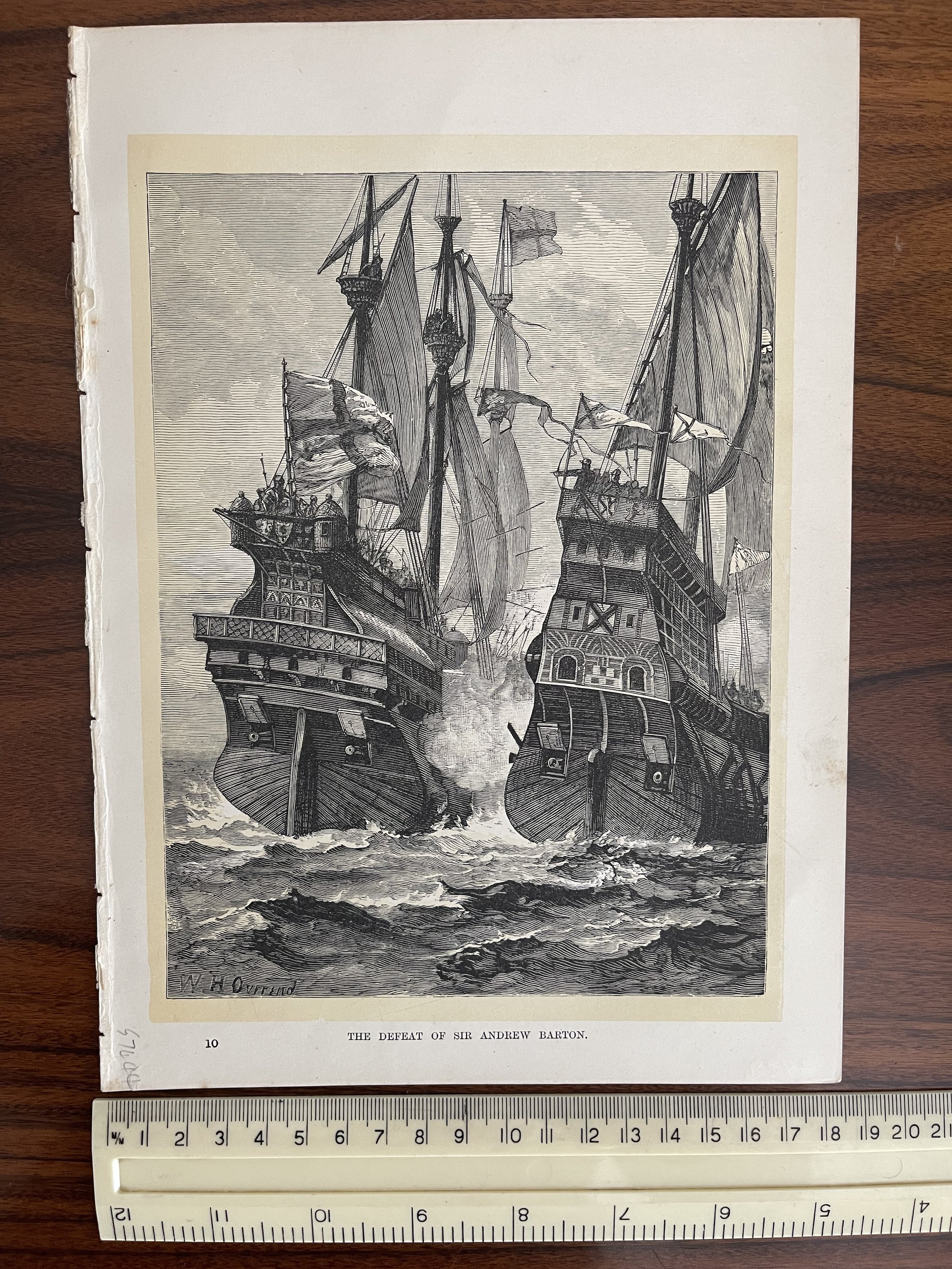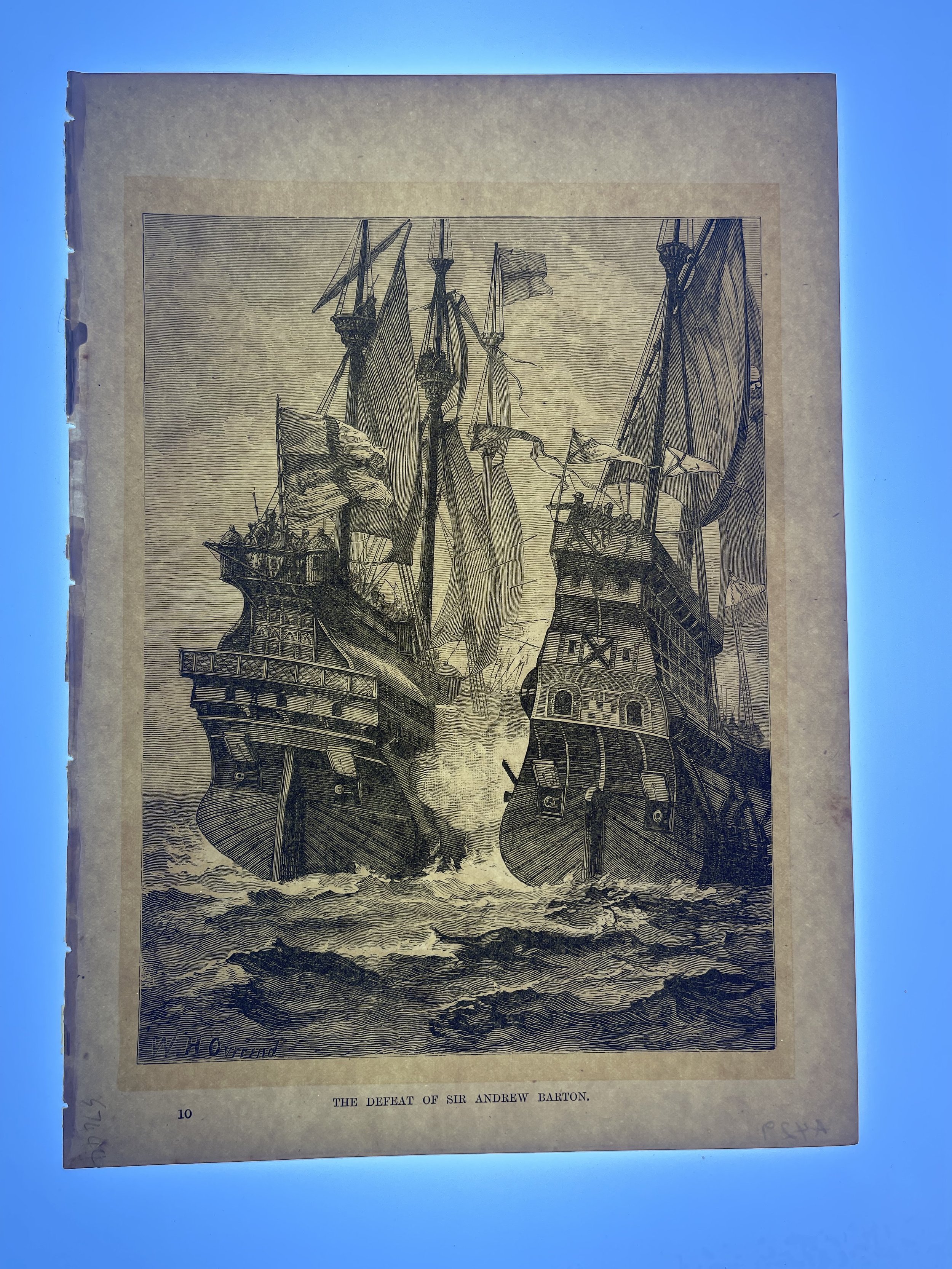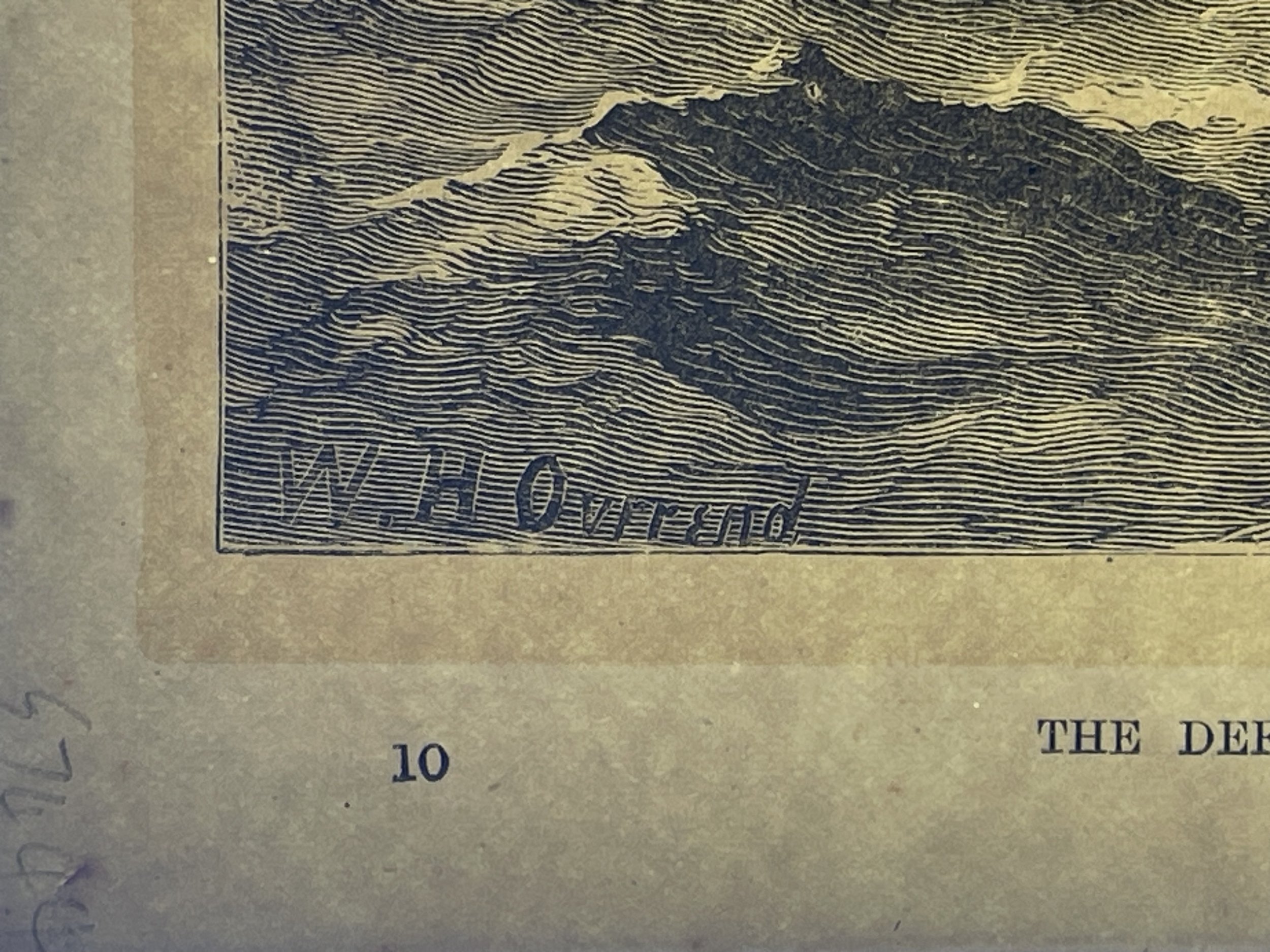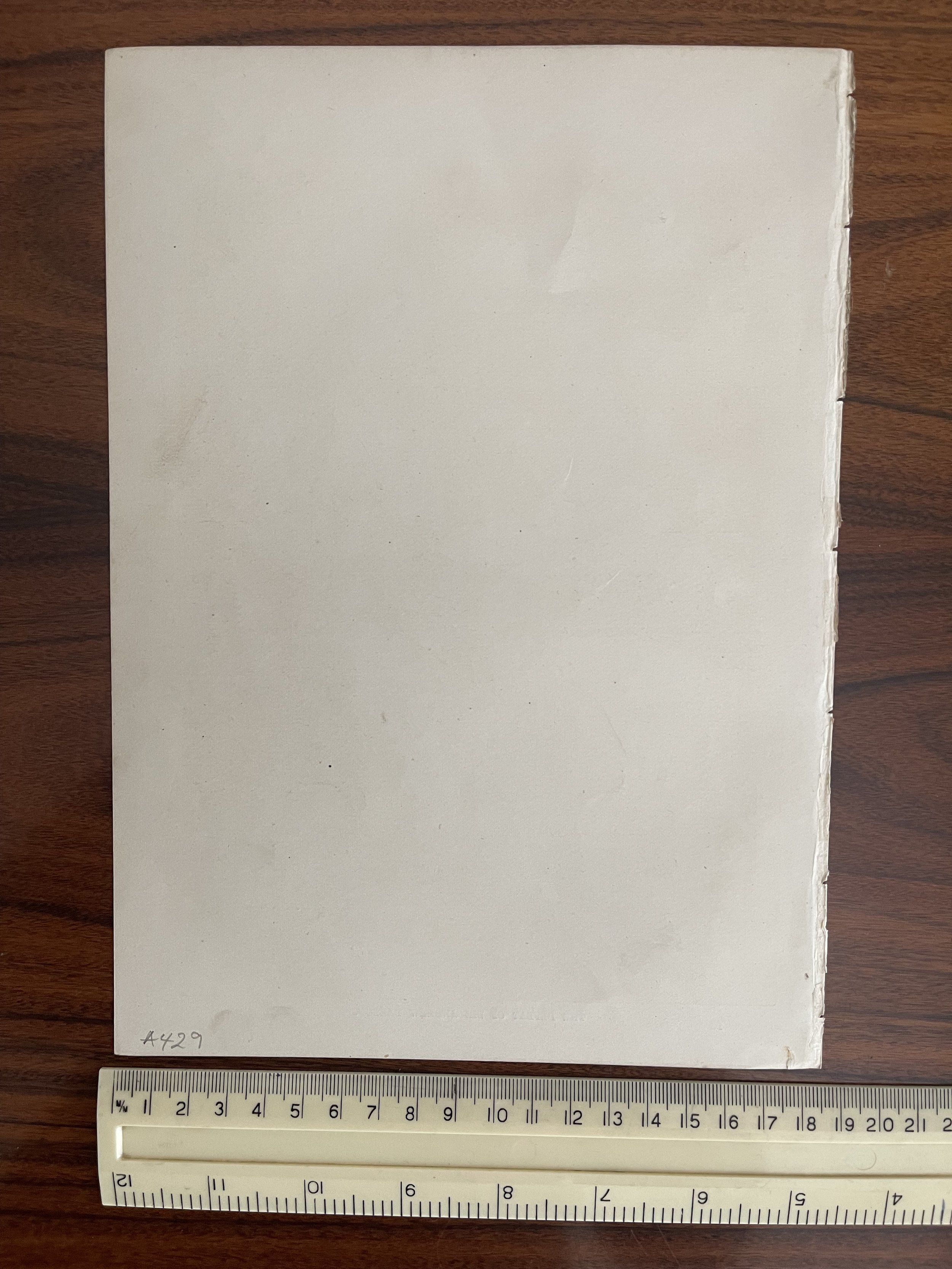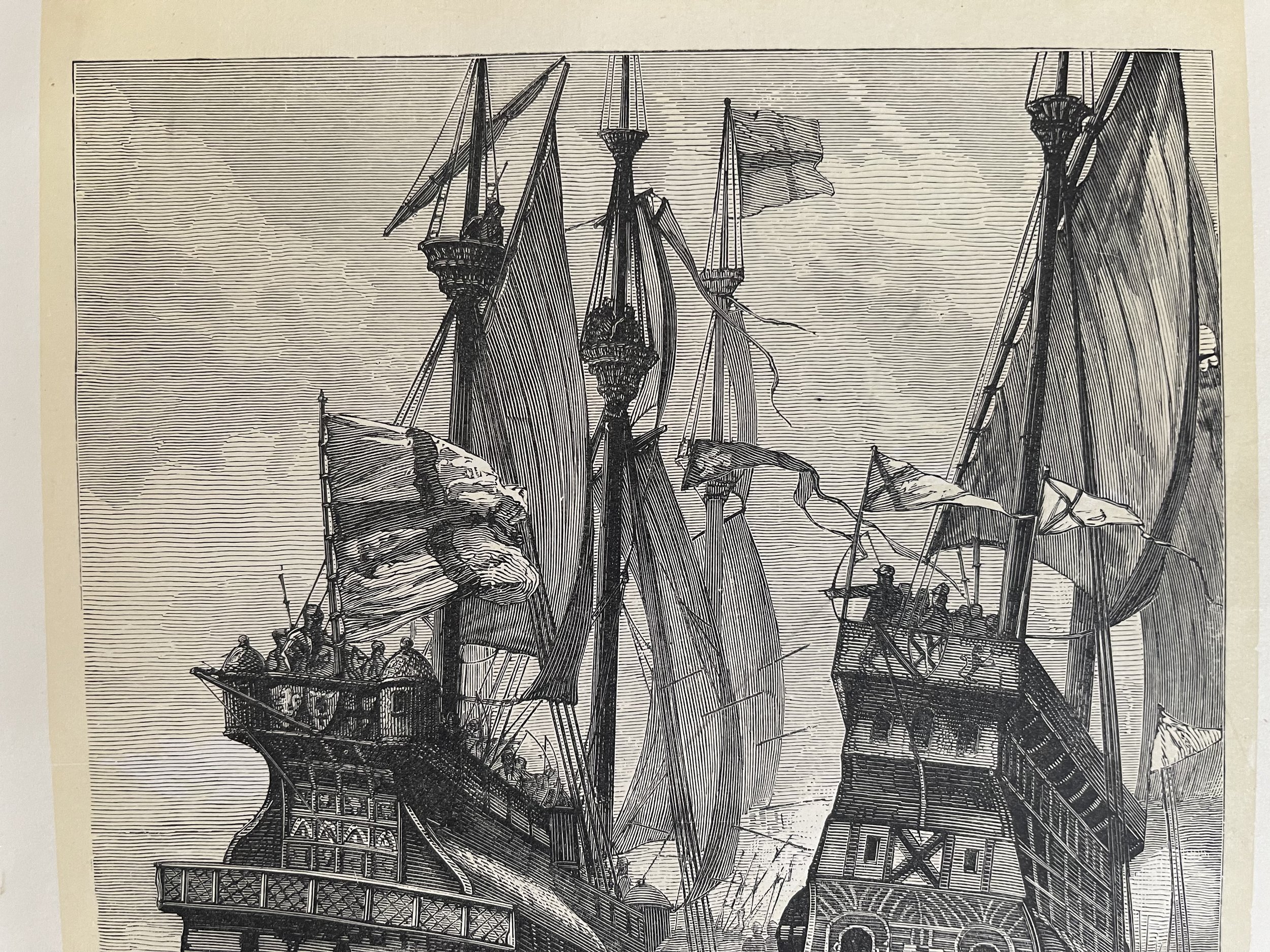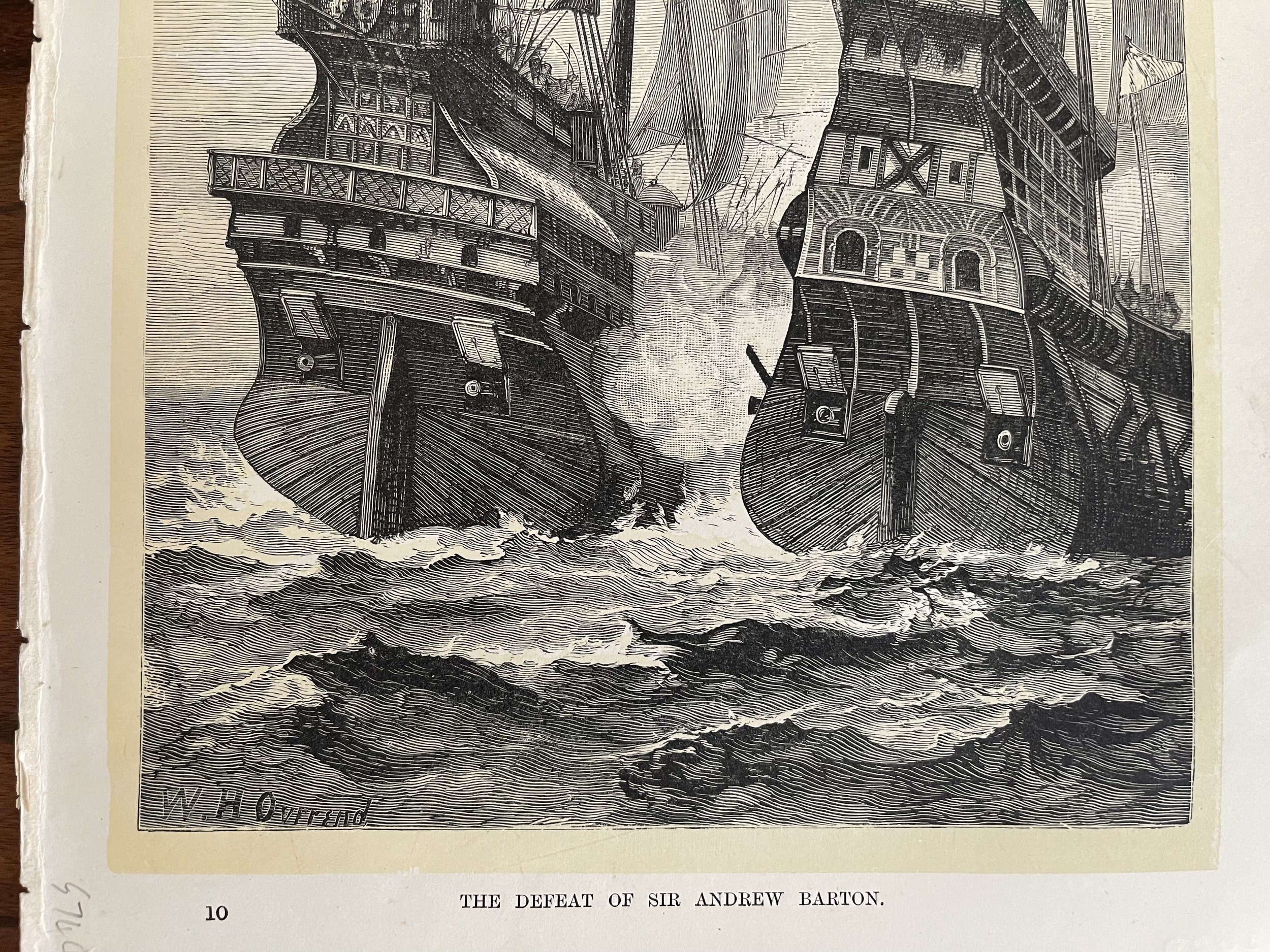An illustration of Barton's last battle - Frederick Whymper / W H Ovrrend - 1887
From page 313 of the 1887 book The Sea: its stirring story of adventure, peril & heroism, Volume 1.
Author(s): Whymper, Frederick
Place of publication: London (England)
Date of publication: 1887
Publisher: Cassell
Sir Andrew Barton (c. 1466 – 2 August 1511 was a Scottish sailor from Leith. He gained notoriety as a privateer, making raids against Portuguese ships. He was killed in battle and memorialised in English and Scottish folk songs. Later in 1511, Andrew Barton was cruising the English coast looking for Portuguese prizes when he and his ships the Lion and Jenny Pirwyn were captured after a fierce battle with Sir Edward Howard and his brother Thomas Howard, 3rd Duke of Norfolk, off Kent at the Downs. According to the story told in ballads, Andrew was shot and killed by an English archer during the battle and subsequently beheaded, his head being taken to the English king as evidence of his death. If true, such action would perhaps have been illegal because Barton possessed a letter of marque. Contemporary English and Scottish chronicle accounts, described below, agree that Andrew died of wounds received in the fight.
The incident was recalled two years later in the exchange of rhetoric at the battle of Flodden. The story of the sea-battle was told by Raphael Holinshed and in other 16th-century English chronicles. In Holinshed's story the Howards at first pretended only to approach and salute Andrew Barton, but then engaged in battle, Barton's ship was the Unicorn and he died from his wounds. The Scottish survivors were taken to London and kept prisoner in the Bishop of York's lodging, York Place at Whitehall. Edward Hall wrote that Andrew encouraged his men during the fight with his whistle. Hall mentions that the two ships were brought to Blackwall on 2 August 1511, and the prisoners were freed after an interview with the Bishop of Winchester, after acknowledging their piracy.
The Scottish bishop John Lesley gave a similar account of the battle in his chronicle. George Buchanan has the detail that Andrew Barton continued fighting after his leg was broken by a gunshot, and encouraged his sailors by beating a drum before he died from his wounds. Buchanan emphasises that the Howards sailed on the instruction of Henry VIII following a representation by a Portuguese ambassador. Hall wrote that Henry VIII was at Leicester when he ordered the Howards to chase the Scottish ships.
From page 313 of the 1887 book The Sea: its stirring story of adventure, peril & heroism, Volume 1.
Author(s): Whymper, Frederick
Place of publication: London (England)
Date of publication: 1887
Publisher: Cassell
Sir Andrew Barton (c. 1466 – 2 August 1511 was a Scottish sailor from Leith. He gained notoriety as a privateer, making raids against Portuguese ships. He was killed in battle and memorialised in English and Scottish folk songs. Later in 1511, Andrew Barton was cruising the English coast looking for Portuguese prizes when he and his ships the Lion and Jenny Pirwyn were captured after a fierce battle with Sir Edward Howard and his brother Thomas Howard, 3rd Duke of Norfolk, off Kent at the Downs. According to the story told in ballads, Andrew was shot and killed by an English archer during the battle and subsequently beheaded, his head being taken to the English king as evidence of his death. If true, such action would perhaps have been illegal because Barton possessed a letter of marque. Contemporary English and Scottish chronicle accounts, described below, agree that Andrew died of wounds received in the fight.
The incident was recalled two years later in the exchange of rhetoric at the battle of Flodden. The story of the sea-battle was told by Raphael Holinshed and in other 16th-century English chronicles. In Holinshed's story the Howards at first pretended only to approach and salute Andrew Barton, but then engaged in battle, Barton's ship was the Unicorn and he died from his wounds. The Scottish survivors were taken to London and kept prisoner in the Bishop of York's lodging, York Place at Whitehall. Edward Hall wrote that Andrew encouraged his men during the fight with his whistle. Hall mentions that the two ships were brought to Blackwall on 2 August 1511, and the prisoners were freed after an interview with the Bishop of Winchester, after acknowledging their piracy.
The Scottish bishop John Lesley gave a similar account of the battle in his chronicle. George Buchanan has the detail that Andrew Barton continued fighting after his leg was broken by a gunshot, and encouraged his sailors by beating a drum before he died from his wounds. Buchanan emphasises that the Howards sailed on the instruction of Henry VIII following a representation by a Portuguese ambassador. Hall wrote that Henry VIII was at Leicester when he ordered the Howards to chase the Scottish ships.
From page 313 of the 1887 book The Sea: its stirring story of adventure, peril & heroism, Volume 1.
Author(s): Whymper, Frederick
Place of publication: London (England)
Date of publication: 1887
Publisher: Cassell
Sir Andrew Barton (c. 1466 – 2 August 1511 was a Scottish sailor from Leith. He gained notoriety as a privateer, making raids against Portuguese ships. He was killed in battle and memorialised in English and Scottish folk songs. Later in 1511, Andrew Barton was cruising the English coast looking for Portuguese prizes when he and his ships the Lion and Jenny Pirwyn were captured after a fierce battle with Sir Edward Howard and his brother Thomas Howard, 3rd Duke of Norfolk, off Kent at the Downs. According to the story told in ballads, Andrew was shot and killed by an English archer during the battle and subsequently beheaded, his head being taken to the English king as evidence of his death. If true, such action would perhaps have been illegal because Barton possessed a letter of marque. Contemporary English and Scottish chronicle accounts, described below, agree that Andrew died of wounds received in the fight.
The incident was recalled two years later in the exchange of rhetoric at the battle of Flodden. The story of the sea-battle was told by Raphael Holinshed and in other 16th-century English chronicles. In Holinshed's story the Howards at first pretended only to approach and salute Andrew Barton, but then engaged in battle, Barton's ship was the Unicorn and he died from his wounds. The Scottish survivors were taken to London and kept prisoner in the Bishop of York's lodging, York Place at Whitehall. Edward Hall wrote that Andrew encouraged his men during the fight with his whistle. Hall mentions that the two ships were brought to Blackwall on 2 August 1511, and the prisoners were freed after an interview with the Bishop of Winchester, after acknowledging their piracy.
The Scottish bishop John Lesley gave a similar account of the battle in his chronicle. George Buchanan has the detail that Andrew Barton continued fighting after his leg was broken by a gunshot, and encouraged his sailors by beating a drum before he died from his wounds. Buchanan emphasises that the Howards sailed on the instruction of Henry VIII following a representation by a Portuguese ambassador. Hall wrote that Henry VIII was at Leicester when he ordered the Howards to chase the Scottish ships.
Code : A429
Cartographer : Cartographer / Engraver / Publisher: Whymper, Frederick / Cassell / W H Ovrrend
Date : Publication Place / Date - London 1887 approx
Size : Sheet size: Image Size: 25.5 x 18.5
Availability : Available
Type - Genuine - Antique
Grading A-
Where Applicable - Folds as issued. Light box photo shows the folio leaf centre margin hinge ‘glue’, this is not visible otherwise.
Tracked postage, in casement. Please contact me for postal quotation outside of the UK.
